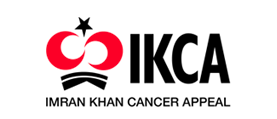Tobacco or Life, the choice is Yours
Tobacco is the leading most preventable cause of death and illness in the world today. According to the World Health Organization (WHO), tobacco kills one person every six seconds and unless immediate action is taken to curb its use, it will kill up to 1 billion people during the 21st century. Eighty per cent of these deaths will take place in low- and middle-income countries like Pakistan.
Tobacco smoke contains over 4,000 chemicals, out of which 250 are extremely harmful and up to 50 are known to cause cancer. A high incidence of lung cancer is linked with smoking. While nearly 70% of lung cancer patients treated at SKMCH&RC since 2007 had a history of tobacco use, the WHO claims that smoking is responsible for over 80% of all lung cancers worldwide and its prognosis is poor because it is usually diagnosed at an advanced stage.
“In Pakistan, we lack the proper diagnostic facilities to identify lung cancer in its early stages and it is often misdiagnosed as tuberculosis. By the time patients show up at SKMCH&RC, it is usually too late” says Dr. Irtaza Khan, Consultant Pulmonologist, SKMCH&RC. However, he also pointed out that even when diagnosed early, the chance of surviving another five years is 73% and most patients with advanced lung cancer are usually given between six months to a year at best. ‘Smoking increases the risk of lung cancer greatly. The best option is to quit. While the lungs of a past smoker may not ever be as healthy as those of a never-smoker, the risk of lung cancer declines over time’ added Dr. Khan.
Yet, tobacco use can also lead to cancers in the bladder, kidneys, uterus, cervix, breast, pancreas, colon, and the lip and oral cavity. A recent WHO report cites that oral cancer is the second most common cancer in Pakistan and data from SKMCH&RCC’s cancer registry confirms this. Lip and oral cavity cancer was the top cancer in adult males and the third most common across all ages at SKMCH&RC in 2010. Data from the Hospital also revealed that nearly 40% of all oral cancer patients seen in the last 5 years had a history of tobacco use.
The WHO report claims that high incidence of oral cancer in Pakistan is linked to the use of smokeless tobacco, which is a culturally acceptable habit. Statistics from 7,292 patients across five hospitals, including SKMCH&RC, show that there were more smokeless tobacco users than tobacco smokers in Pakistan, 37.4% as compared to 23.6%, respectively, and 4.2% used both. The report also points out that a smokeless tobacco user is four times more likely to get oral cancer than someone with no history of tobacco use, and two times more likely than someone who smokes cigarettes.Common smokeless forms of tobacco available in Pakistan include paan/betel with tobacco, chalia/supari, naswar, and gutka.
Controlling tobacco use is the goal and awareness about its harmful effects needs to spread. While the former can be achieved by banning tobacco advertisements, its use in public places and increasing taxes, the latter is the responsibility of organisations such as SKMCH&RC. This year, SKMCH&RC has enlisted the help of tennis star Aisam-ul-Haq Qureshi, and cricket superstar Shahid Afridi, to give us all a “healthy” reminder that tobacco only harms the body and we have the choice to stop using it.
Back to Latest News